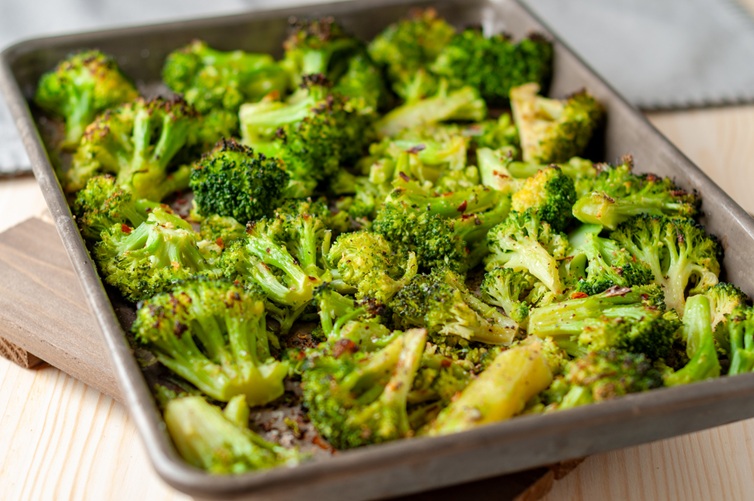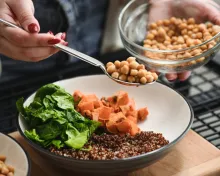1. Spinach
Protein: 5.4 grams per cooked cup
Spinach is more than just a source of iron. When cooked (which condenses its volume), spinach delivers a solid amount of protein. Add it to soups, pastas, or smoothies to boost both nutrition and protein.
2. Broccoli
Protein: 4.3 grams per cooked cup
This cruciferous vegetable is known for its fiber and antioxidants. But it also offers a good amount of protein for a veggie. Roast it, steam it, or stir-fry it for a satisfying side.

3. Brussels sprouts
Protein: 4 grams per cooked cup
These mini cabbages are protein-packed and high in vitamin C and K. Roasting with a bit of olive oil and balsamic vinegar makes them delicious and nutritious.
4. Green peas
Protein: 8.6 grams per cooked cup
Green peas are one of the highest protein vegetables available. They're also a good source of fiber, vitamins, and minerals. Toss them into rice dishes, salads, or even blend them into soups.
5. Kale
Protein: 3.5 grams per cooked cup
This leafy green is rich in antioxidants and essential nutrients. When sautéed or added to soups, kale contributes a healthy dose of protein and texture.
6. Asparagus
Protein: 4.3 grams per cooked cup
Asparagus is a protein-supporting vegetable. It’s easy to prepare and pairs well with nearly any dish.

How to maximize vegetable protein?
- Combine with other plant proteins: Pair vegetables with legumes, grains, nuts, or seeds to create complete protein meals.
- Cook them: Cooking many vegetables increases the density of nutrients and protein per cup.
- Eat a variety: Different vegetables offer different amino acid profiles. variety helps ensure you get a broader range of nutrients.
While vegetables might not be the first food you think of when it comes to protein, they can absolutely play a supportive role in your daily intake, especially when combined with other plant-based proteins. Whether you’re vegan, vegetarian, or simply trying to eat healthier, these vegetables can help you build a nutrient-dense, protein-boosted plate.

